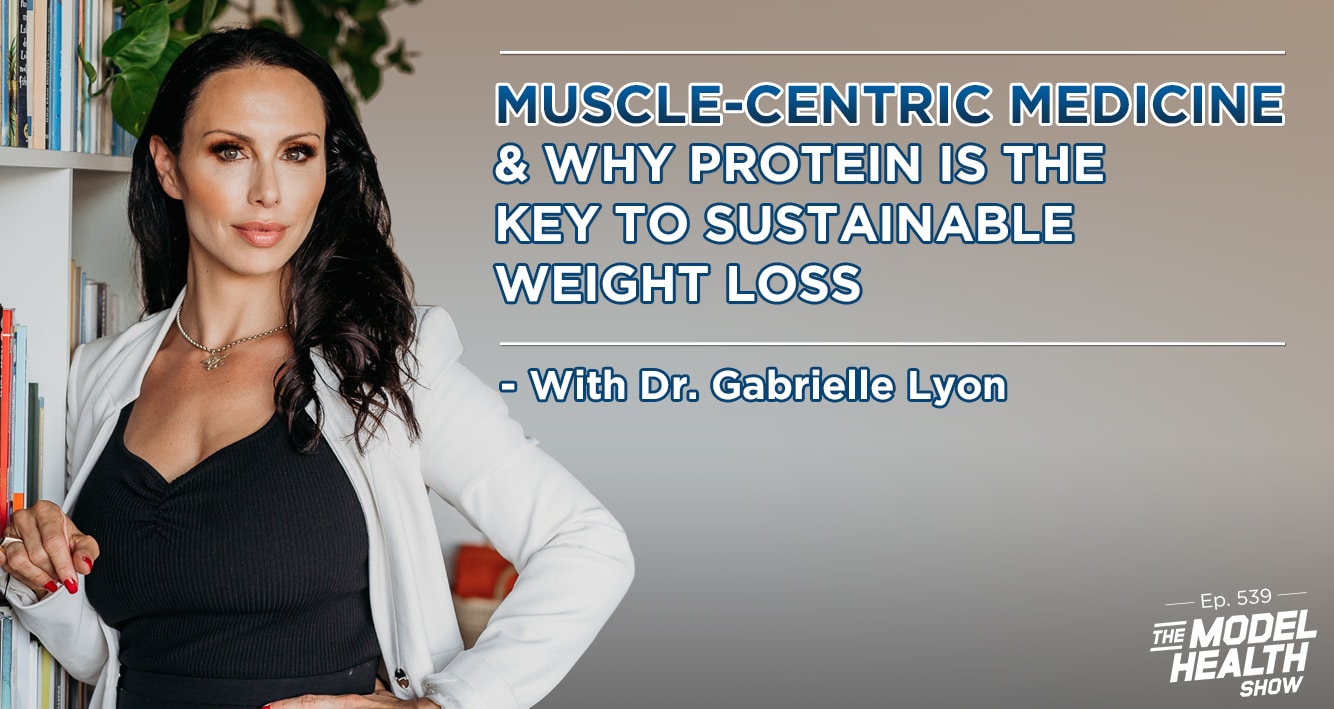Muscle-Centric Medicine: The Future of Holistic Health
By understanding the principles of muscle-centric medicine and incorporating them into your life, you're taking a proactive step towards holistic health.
By understanding the principles of muscle-centric medicine and incorporating them into your life, you're taking a proactive step towards holistic health.

Muscle-centric medicine is a relatively new term coined by Dr. Gabrielle Lyon, who is a well-respected functional medicine practitioner and founder of the Institute for MUSCLE-CENTRIC MEDICINE®.
It focuses on the role of skeletal muscle in overall health and wellness, yet it's principles are based on age-old wisdom.
Our muscles are not just for moving; they are central players in our overall health.
In this article, we will delve into the principles of muscle-centric medicine and understand why it is pivotal to the future of holistic health.

Muscle-centric medicine places skeletal muscle at the forefront of health and disease prevention.
It's not just about building muscle to look good; it's about acknowledging the many essential roles muscles play in maintaining our overall health.
This includes metabolism regulation, hormone balance, and even cognitive function.
The importance of muscle goes beyond strength and mobility. Muscles:

One of the significant threats to public health today is metabolic syndrome, which is a cluster of conditions like increased blood pressure, high blood sugar, and abnormal cholesterol or triglyceride levels.
It increases the risk of heart disease, stroke, and diabetes.
Muscle-centric medicine posits that maintaining healthy muscle mass and function can directly combat these threats.
Sarcopenia, the age-related loss of muscle mass and function, is a significant concern as we age. It can lead to frailty, falls, and a decreased quality of life.
By focusing on muscle health throughout our lives, we can potentially delay or prevent the onset of sarcopenia and its associated complications.
The relationship between muscles and bones is symbiotic.
As muscles contract and pull on bones, it stimulates bone-building processes, increasing bone density.
This is crucial for preventing conditions like osteoporosis.

Proper nutrition is vital to support muscle health. This means:
Both resistance and aerobic exercises are vital for muscle health:
Sleep, stress management, and avoiding harmful habits like excessive alcohol consumption or smoking are just as important.
Remember, muscles recover and grow during rest, so ensuring proper sleep and stress levels is vital.
Muscle-centric medicine is more than a trend; it's a shift in how we perceive health.
Instead of only reacting to diseases, it's about proactive measures, recognizing the interconnectedness of our body systems, and placing our muscles at the center of this web.
As research progresses, we'll likely see an even greater emphasis on muscle health in medicine. But you don't have to wait for mainstream adoption.
By understanding the principles of muscle-centric medicine and incorporating them into your life, you're taking a proactive step towards holistic health.
Your cart is currently empty.
Start Shopping